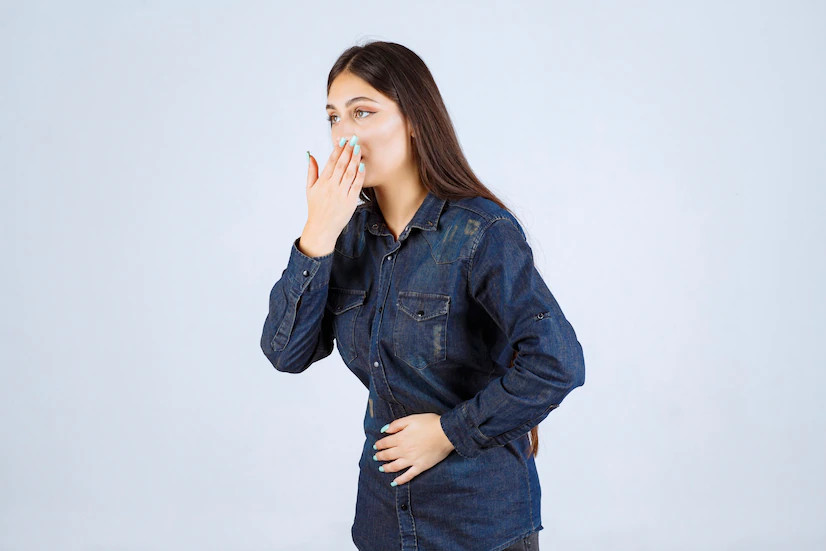Your eating habits may increase your risk of heartburn. Eating large portions, sleeping after meals, and eating irregularly can trigger heartburn. What about an empty stomach? Can it really trigger heartburn?
Empty Stomach and Heartburn
Heartburn is a sensation of intense heat and pain that is experienced in the chest or upper abdomen. This condition is often referred to as heartburn because it sometimes causes pain, tightness, and discomfort in the area. Heartburn occurs when the lower esophageal sphincter muscle between the stomach and esophagus does not close normally. As a result, stomach acid in the stomach can rise up into the esophagus.
A number of studies reveal the influence of lifestyle on the appearance of acid reflux symptoms. Some habits, such as overeating, eating irregularly, eating a lot of spicy or fatty foods, smoking, and a lack of physical activity, can also be risk factors for heartburn.
In addition to overeating, an empty stomach due to irregular eating is also associated with increased stomach acid. Stomach acid is present in the stomach all the time, whether food is present or not. When hungry, stomach acid can build up in the upper part of the stomach, especially if your stomach has been empty for some time. When this acidic fluid rises into the esophagus because the lower esophageal sphincter muscle starts to weaken, you will feel heartburn.
Hunger can also affect stomach acid production. The stomach and intestines contain the hormone ghrelin, known as the hunger hormone. This hormone can stimulate your appetite and make you want to increase your food intake.
The quantity of food has an impact on the production of the hormone ghrelin. This hormone will increase when the stomach is empty and decrease when the stomach is filled with food. In addition, this hormone can also stimulate digestion and acid secretion, which aggravates acid reflux.
Foods and Drinks that Trigger Stomach Acid Rise
In addition to your eating habits, the types of food and drinks you consume can also affect the production of excessive stomach acid. Some foods that can trigger heartburn include:
- Acidic foods (garlic, onions, tomato sauce)
- Alcoholic, carbonated or caffeinated drinks
- Milk and its processed products, such as cheese
- Chili powder, garlic powder, and peppercorns
- Chocolate
- Citrus fruit groups such as oranges, lemons, and limes
- High-fat foods
- Fried food
- Fast food (fat-containing, oily, or fried)
If you often experience heartburn from eating the foods or drinks above, you should start limiting your consumption of these foods or drinks. Acid reflux can occur shortly after eating foods that trigger the rise in stomach acid or when you wake up the next day. Sleeping or lying down right after eating can also contribute to it.
Lifestyle Changes to Manage Heartburn
To treat heartburn, your doctor may prescribe medications such as antacids, H2 antagonists, and proton pump inhibitors to inhibit the production of stomach acid. Apart from medications, you can also treat heartburn by making lifestyle changes such as:
- Eating small but frequent meals every few hours
- Lose weight to be in the ideal range
- Not sleeping immediately after eating
- Sleep on your left side
- Avoid foods and drinks that trigger acid reflux
- Quit smoking
Medical conditions and lifestyles can cause heartburn. If you experience frequent heartburn, up to every week, then you should see a doctor.
If you need medical advice or consultation, you can either visit a doctor or make use of the consultation features that are available in the Ai Care application by downloading the Ai Care application from the App Store or Play Store.
Looking for more tips and information about other health conditions, first aid, and home remedies? Click here!
- dr Hanifa Rahma
Tresca, A. (2023). Why Do I Have Heartburn?. Available from: https://www.verywellhealth.com/why-do-i-have-heartburn-7853394
Sparacino. A. (2023). Can Being Hungry Cause Heartburn?. Available from: https://www.healthcentral.com/article/experience-heartburn-symptoms-when-hungry
Santhakumar, S. (2023). Can people get heartburn from not eating?. Available from: https://www.medicalnewstoday.com/articles/can-you-get-heartburn-from-not-eating#eating-habits-and-heartburn












